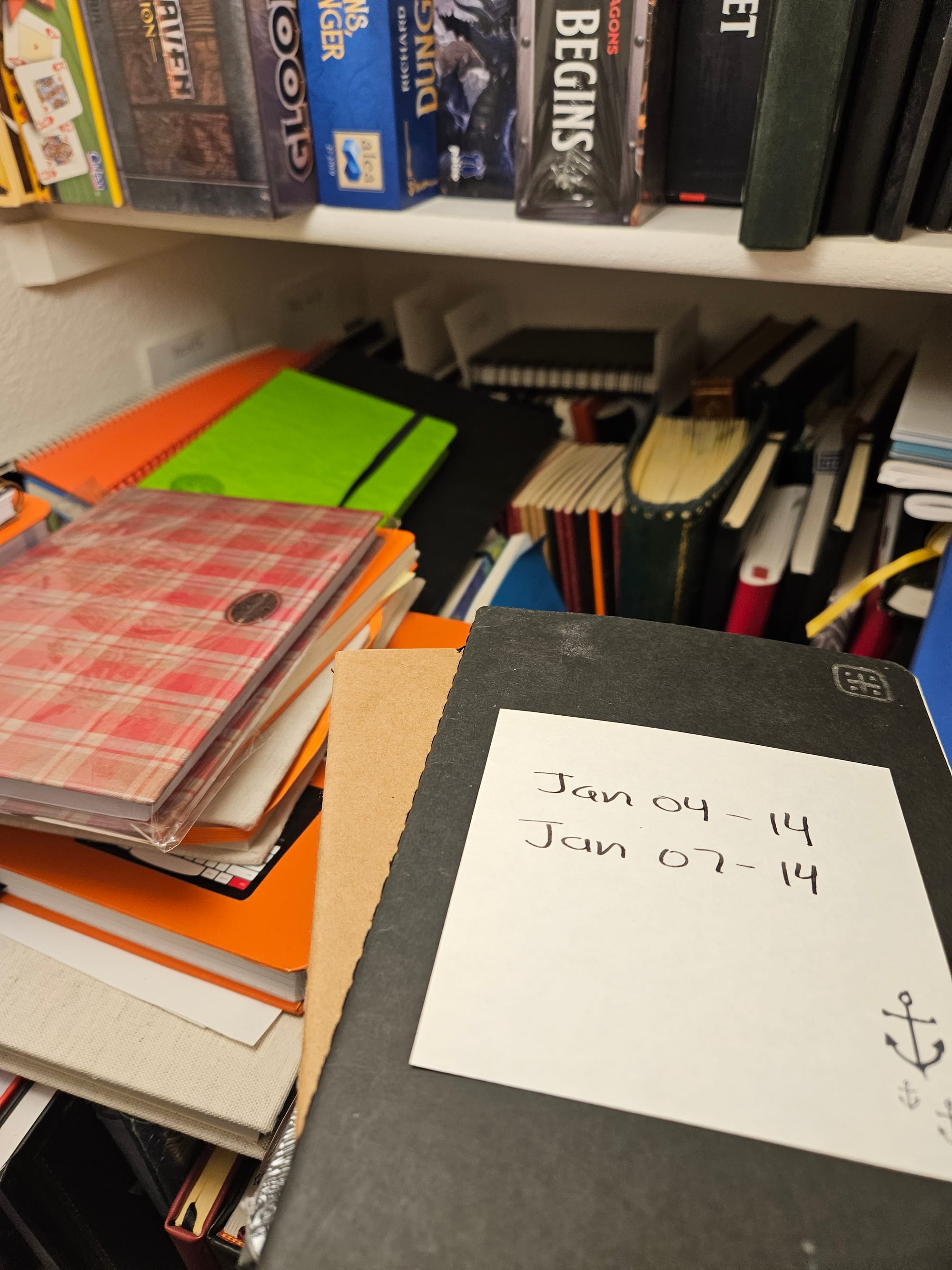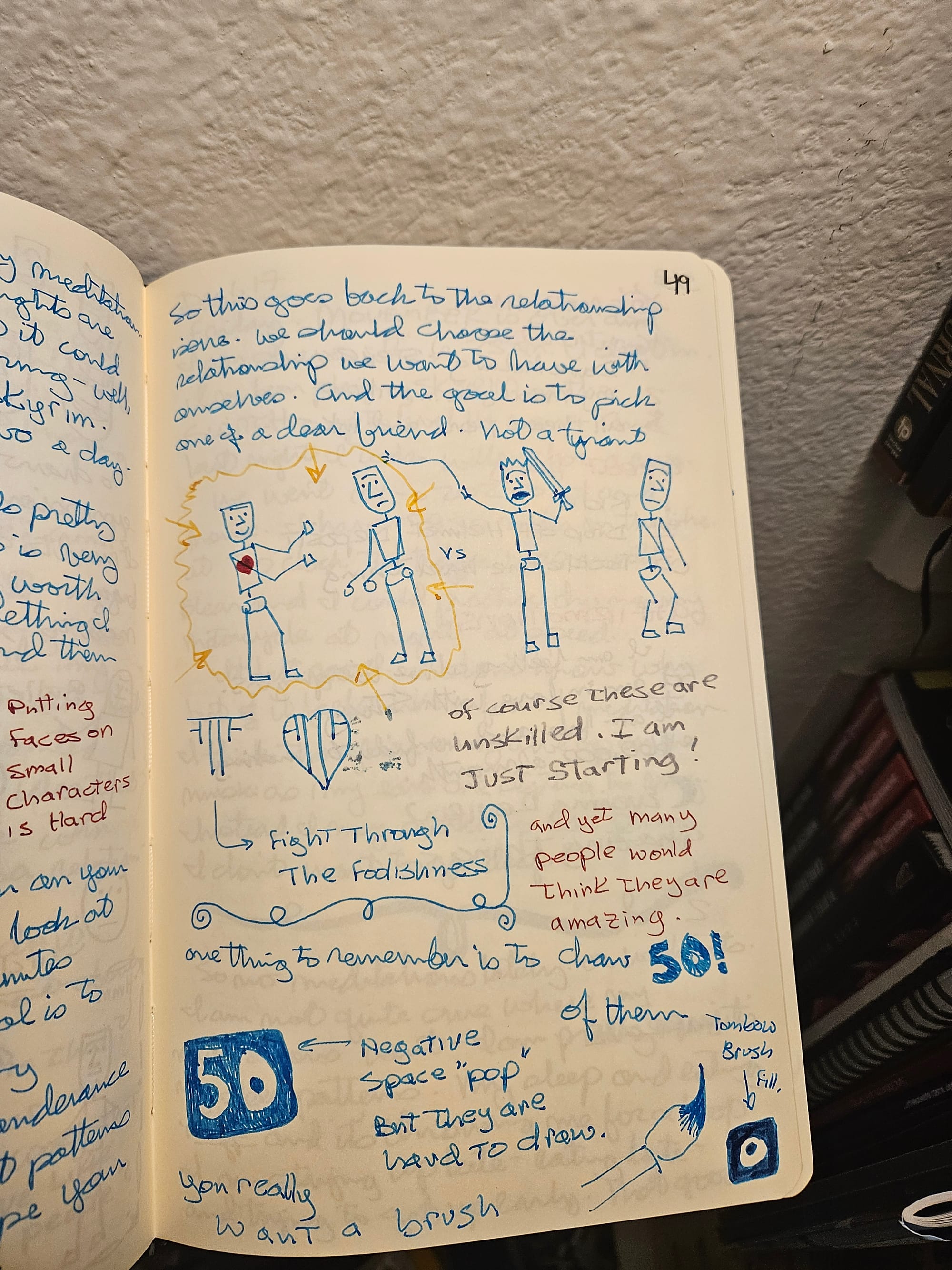This post is much more of a story than a guide. After sharing what I have learned about Personal Knowledge Mangement (PKM), with a group of entrepreneurs, I had a realization. I have been teaching this backward. I do not teach PKM the way I learned it. I teach it the way I think about it now.
Most people want to know about PKM because having one does in fact make me much more productive. It is also my number one support system for being an adult with attention deficit disorder (ADD). I say ADD because I am not hyper - intense yes, hyper? Not so much. But I did not learn about PKM because I wanted to be more productive or because I was trying to mitigate my ADD. Heck, I didn't even know I had ADD when I started working on this.
The real reason I started learning about digital second brains, is that I had invested heavily in continuous learning, and I felt like I had started to spin my wheels. What had I learned? What had I put into practice? I didn't know, but I kept gathering more books, more content, more ideas. Why?
I started my second brain because I wanted to get a better handle on my learning but more than that. I wanted to improve my life, not become a hoarder of ideas. Libraries are great and all, but I am an engineer both by personality and disposition. I want to build things, to put ideas into practice. And I did not feel like I was doing that.
In college, my professors extolled the virtues of taking good notes. I found that if I took good lecture notes by writing it down, I remembered it. When an idea went in my ear, and out my fingertips through a pen onto paper, I could recall it. When I didn't write ideas down. They didn't stick. Consequently, I took notes for the next three decades using paper notebook. I have boxes, and boxes of notebooks I collected over the years.

When I read the 4 Hour Work Week by Tim Ferriss my adult learning really kicked into high gear. He said, "Stop watching the news." So, I did. I replaced the news with Ted Talks. As a result, I noticed two things. First, I was happier (the news really is an anxiety making business) and second, I learned new things. I quickly graduated from listening to 10–15-minute audio recordings of Ted Talks, to listening to Audio Books. Then, in 2014 when I joined EO, I began to attend their monthly learning events.
I was hooked. I had never enjoyed learning so much. However, with all this learning, and all these paper notes there came a problem. A college degree, heck even a high school diploma is aiming at producing something. That kind of education is oriented toward generating an outcome, a certificate, a qualification, a minimum level of capability. When I got my engineering degrees, I felt like I knew how to be an engineer. (What I had really gained was the minimum necessary capacity to become an engineer.) But there was a goal, a finish line.
Adult learning in contrast had no clear finish line. Despite all the talk of goal setting, I never felt like I was done. There was always something else to learn. And as I kept going, I kept taking more notes. I experimented with lots of different note systems. I started to use colored pens in my notes. I even learned sketch noting, and bullet journaling. You name it.

But all of my notes had one thing in common.
I never looked at them after I wrote them. I mean never.
And the more I learned, the harder it was to recall what I had gathered. I kept having this felt sense that a new author, or a new book was touching on a concept or idea I had heard before, but I couldn't remember what it was. And after four or five years, I was shocked to discover I had read, (or listened to) nearly 200 books!
While that is a staggering number - almost 50 a year, few stood out. I felt sure some made a difference but not all. Learning had declined into "knowledge as entertainment." I read, took notes and forgot.
What's more, I discovered another problem with my paper notes. They were all interleaved. I would take notes on the next blank page. This meant my notes were organized sequentially by time, but not by topic. And if a topic covered more than one meeting, more than one lesson, more than one session, the notes could be lost in a jumble of other unrelated notes.
It turned out, the way I grabbed notes in school, worked for school, because the classes were structured in a way that made it easy to organize paper notebooks. I could have a five-subject notebook - one section for every class. But as an adult learner, with no clear agenda, and no super organized structure like a semester, I carried one notebook for everything.
This made my efforts unusable over time, but it was the best I could do.
Or was it?
A friend named Aric Mae introduced me to the concept of digital note taking. Using an iPad with Notability, a paper-like screen protector, and an Apple Pencil I discovered I would write notes by hand on an iPad. What's more, I could organize my notes better. Suddenly I had infinite amounts of paper, and I could begin to create notes by topic and carry them all with me. It was like the kindle but for my notes.
And yet...
It still didn't quite solve my problem. I would write... but never review. I would capture, but seldom create. I would absorb but not apply what I was learning.
But then in 2017 I read the book How to Take Smart Notes by Sönke Ahrens. Ahrens introduced me to the concept of working with knowledge. I moved from a capturer of ideas to a creator of ideas. Instead of saving, I started synthesizing. Without realizing it, I had stepped into the world of Personal Knowledge Management, and that was a revolution. That was the step that led to where I am today.
What was the big idea? To use a "Zettlekasten" system to create associations between all the different ideas I was learning. In short, to learn how to make a second brain out of my notes.




